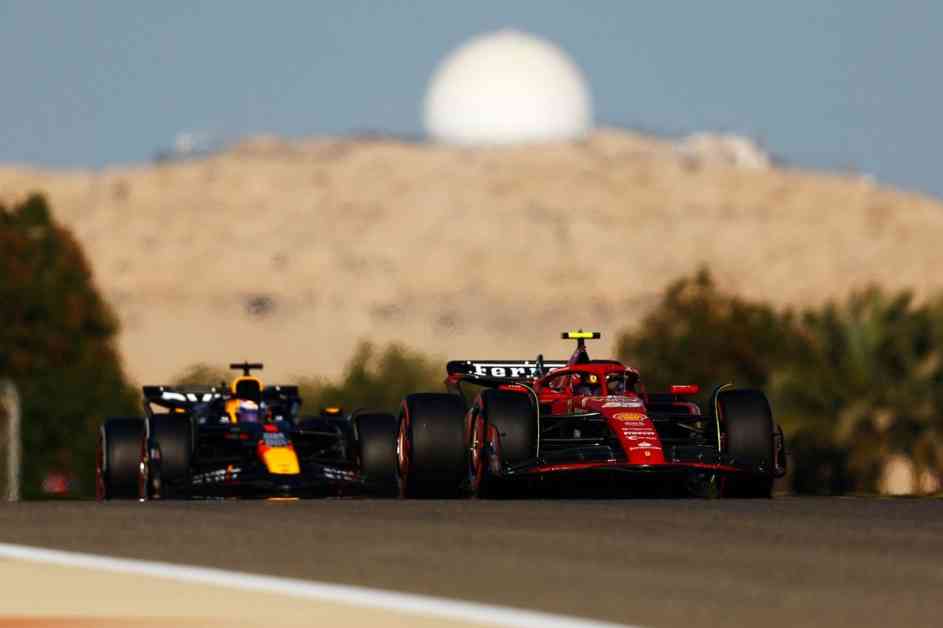Bahrain has once again secured the hosting rights for Formula 1 pre-season testing in 2025, marking the fifth consecutive year that the Bahrain International Circuit will be used for this purpose. Scheduled to take place from 26 to 28 February, the testing session will provide teams with the opportunity to fine-tune their cars and strategies ahead of the final season under the current technical regulations.
The decision to hold pre-season testing in Bahrain comes as no surprise, given the circuit’s reputation for providing stable and representative track conditions. Unlike the winter conditions at the Circuit de Barcelona-Catalunya, Bahrain offers more consistent temperatures, allowing teams to gather valuable data and insights into their new cars’ performance.
However, the desert climate in Bahrain does come with its challenges, particularly when it comes to unpredictable weather conditions. High winds have been known to sweep large amounts of sand onto the track surface, posing a significant risk to driver safety and affecting the overall testing experience. Despite these challenges, Bahrain remains a popular choice for pre-season testing due to its reliability and track quality.
The decision to host pre-season testing in Bahrain also aligns with the broader changes to the 2025 Formula 1 calendar. The Bahrain Grand Prix has been rescheduled to April to avoid conflicting with Ramadan, while other races have also been moved to accommodate the new lineup. Saudi Arabia, for example, will see its race moved from March, with Australia, China, and Japan opening the season in a triple-header format alongside Bahrain and Suzuka.
With pre-season testing wrapping up just two weeks before the opening race in Melbourne, teams will have a limited window to make final adjustments and preparations for the upcoming season. This testing session is expected to be the last under the current three-day format, as new technical regulations are set to be introduced in 2026. Teams will then have six days of running time to get accustomed to the new cars and power units before the competition officially begins.
In line with Formula 1’s commitment to sustainability and its goal of achieving net zero emissions by 2030, a “significant percentage” of freight will remain in Bahrain ahead of the grand prix. This move reflects the sport’s efforts to reduce its environmental impact and promote more eco-friendly practices throughout the racing season.
Overall, Bahrain’s hosting of pre-season testing for the 2025 Formula 1 season signals another exciting chapter in the sport’s calendar. With teams gearing up for the final season under the current regulations and looking ahead to the introduction of new technical changes in 2026, the testing session in Bahrain will play a crucial role in shaping the competitive landscape for the upcoming season.
Bahrain’s Role in Formula 1 Pre-Season Testing
Bahrain’s position as a key hub for Formula 1 pre-season testing has solidified over the years, with the Bahrain International Circuit serving as a reliable venue for teams to prepare for the upcoming season. The decision to host testing in Bahrain for the fifth consecutive year underscores the circuit’s significance in the world of motorsport and its ability to provide optimal conditions for testing new cars.
Challenges and Opportunities in Bahrain
While Bahrain offers a more stable climate for pre-season testing compared to other circuits, it is not without its challenges. The desert environment poses unique obstacles, such as high winds and sandstorms, that can impact track conditions and testing outcomes. Despite these challenges, Bahrain remains a popular choice for teams due to its consistent temperatures and high-quality facilities.
Looking Ahead to the 2025 Formula 1 Season
As teams gear up for the 2025 Formula 1 season, pre-season testing in Bahrain will play a crucial role in shaping their strategies and preparations. With the final season under the current technical regulations on the horizon, teams will be looking to make the most of their time on the track to fine-tune their cars and gain a competitive edge. The testing session in Bahrain will set the stage for an exciting season of racing and pave the way for the introduction of new technical regulations in 2026.
